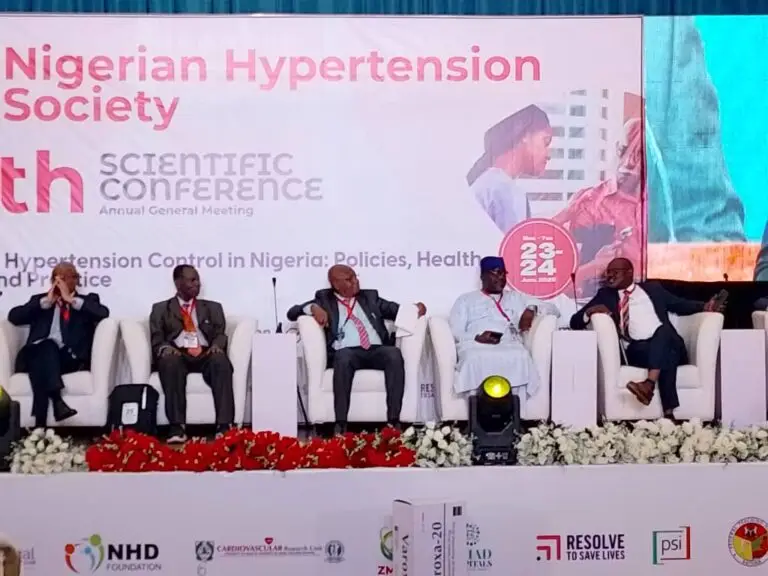- Agency Report
The Federal Government has raised concerns that many cases of hypertension in Nigeria remain undiagnosed, significantly contributing to the country’s growing burden of non-communicable diseases.
Dr Salma Anas, Special Adviser to President Bola Tinubu on Health, made this known on Monday in Abuja at the opening of the 25th Annual Scientific Conference and General Meeting of the Nigerian Hypertension Society.
The theme of the conference is “Scaling up Hypertension Control in Nigeria: Policies, Health Systems and Practice.”
Anas, represented by her Technical Adviser, Mr Umar Tanko, cited data indicating that nearly one in three Nigerian adults had hypertension, yet many were unaware of their condition.
She added that even among diagnosed cases, control rates remained alarmingly low.
She attributed the situation to the rising cost of medications, limited access to healthcare, and inadequate financial support for patients.
“Hypertension is not just a physical condition; it is a threat to national productivity, stability, and sustainable development,” she said.
According to Anas, the Federal Government is prioritising hypertension control through several structural reforms.
“These include the integration of hypertension screening into primary healthcare, implementation of health insurance reforms, and the rollout of a national health sector strategic development plan.
“Other initiatives include expanding the Global Action on Non-Communicable Diseases (GAC) platform to improve access to care, and increasing financial protection for patients requiring lifelong management of hypertension and related conditions.”
She added that efforts were also underway to strengthen surgical and vascular care capacity, reduce dependence on imported drugs, and ensure consistent availability of high-quality medications.
Speaking at the event, Prof. Simon Isezuo, President of the Nigerian Hypertension Society, described hypertension as a silent killer and a major public health challenge in Nigeria.
He noted that many people were unaware they have the condition, and among those on treatment, fewer than 10 per cent achieved proper blood pressure control.
“This is why stroke, kidney disease, heart failure, and sudden death continue to rise.
“In many of these cases, uncontrolled hypertension is the underlying cause,” he said.
Isezuo called for intensified efforts to raise awareness, improve diagnosis, and reduce salt consumption, identifying it as a key risk factor.
He also urged Nigerians to engage in regular physical activity such as walking, jogging, or other moderate exercises that could help control blood pressure and prevent hypertension.
Also speaking, Prof. Batsen Onwubere highlighted the high cost of treating hypertension due to its chronic nature and Nigeria’s heavy reliance on imported medications.
He noted that the Federal Government was working to promote local drug production to help lower costs, although exchange rate volatility continued to impact drug affordability.
He acknowledged the role of the National Health Insurance Agency in improving access but said current coverage remained limited.
“The society continues to engage government, philanthropists, and the general public to address the burden of hypertension in Nigeria,” Onwubere said.
The News Agency of Nigeria (NAN) reports that the two-day conference will conclude on Tuesday. NAN


